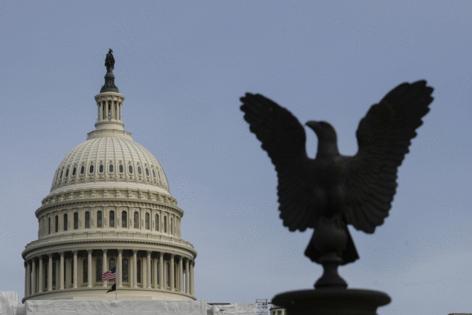Will the new Republican-controlled Congress give parents a bigger tax break for children?
Published in Political News
WASHINGTON — Most California families today can claim a $2,000 credit from their federal income tax for each child. But unless Congress acts, that break drops to $1,000 per child at the end of next year.
Republicans and Democrats alike are eager to boost the credit, which as recently as three years ago was as much as $3,600 per child. But they’ve had trouble agreeing on the details.
An expanded credit could have an easier time winning approval. Republicans will control both Houses of Congress, instead of just the House, and Donald Trump will be president. Vice President-elect JD Vance has proposed increasing the credit to $5,000.
While there’s no consensus about the amount of any tax break, or how it would work, there is there’s widespread bipartisan agreement something should be done.
An increased credit “definitely should be back,” said Sen. Alex Padilla, D-Calif.
Families that now qualify for the full break can get a $2,000 per child credit for children under 17. Those eligible must have an adjusted gross income of $400,000 or less if filing jointly or $200,000 or less for other filers. For higher incomes, the credit is phased out.
During the Covid era in 2021, when the credit was as much as $3,600 per child, data showed the higher amount helped pull millions of children out of poverty.
The current credit is part of the 2017 tax cut law, a measure pushed hard by Trump during his first term and passed in Congress with no Democratic votes. The child credit is part of a long list of tax changes that will expire at the end of next year unless Congress acts.
Republican congressional leaders have said that bringing up the expiring tax laws, and extending their life, will be one of the first priorities of the new Congress when it convenes next month. Unlike most legislation, it is likely to need only simple majorities in the House and Senate to pass, which probably means it can be approved without any Democratic support
Normally, Senate legislation can’t proceed unless 60 members approve. Republicans will control 53 seats next year, but the tax law is expected to be brought up under a special procedure that allows it to move forward with 51.
Strong support for change
There’s already somewhat of a blueprint for how to move forward. Earlier this year, the House overwhelmingly passed legislation to keep the credit at $2,000 per child.
The credit also would be partly refundable, meaning that even if someone does not have tax liability or has too little income to get a credit subtracted, they can receive a break.
But that bill died in the Senate. Many Republicans were concerned that under the bill, lower income people might lose some motivation to work if they got the bigger credit.
Sen. Mike Crapo, R-Idaho, top Republican on the tax-writing Senate Finance Committee, noted that a huge part of the bill’s cost would go to people who pay no federal income tax.
“That isn’t tax relief. It’s a subsidy.,” he said during the August debate on the bill.
Others viewed the credit very differently. “The child tax credit as a policy is focused on reducing childhood poverty. The refundable aspect is especially helpful when families can use real money to support themselves when they have little to no earnings,” said Miklos Ringbauer, principal and founder of MiklosCPA, a Southern California accounting firm.
The biggest hurdle could be the cost, though the House bill was paid for largely by some Covid-era business tax breaks.
“We’ve seen what can work,” said Sen.-elect Adam Schiff, D-Calif., who as a House member this year voted for the bill. “I think that’s an area where we can get some bipartisan agreement.”
____
©2024 The Sacramento Bee. Visit at sacbee.com. Distributed by Tribune Content Agency, LLC.




























































Comments